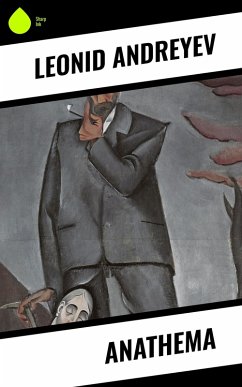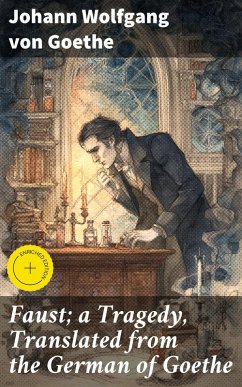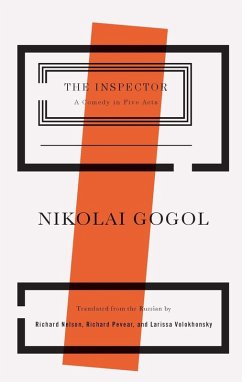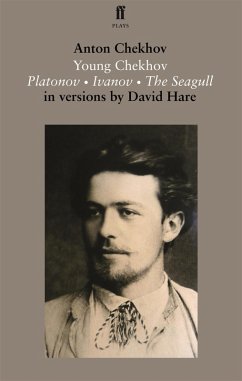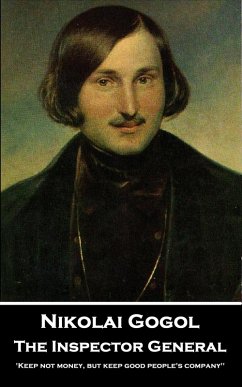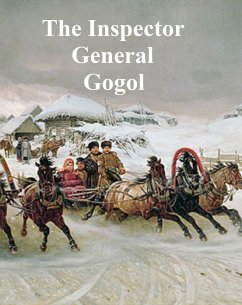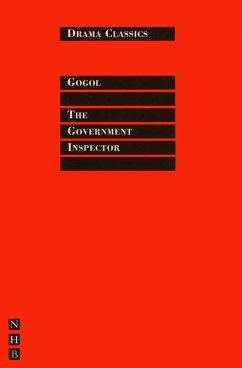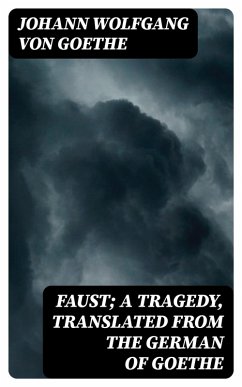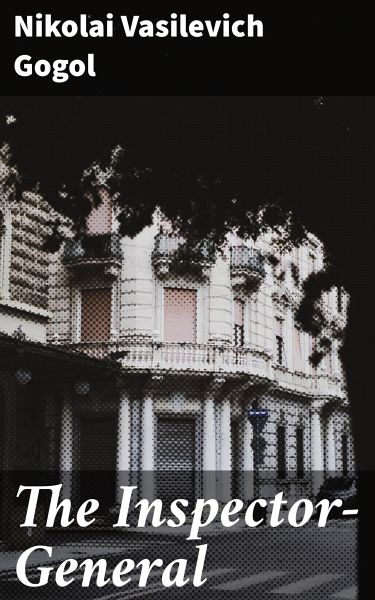
The Inspector-General (eBook, ePUB)
Enriched edition. A Satirical Comedy Exposing Russian Bureaucracy and Greed in the 19th Century
Kommentar: Hightower, Penelope / Redaktion: Good Press / Übersetzer: Seltzer, Thomas
Versandkostenfrei!
Sofort per Download lieferbar
1,99 €
inkl. MwSt.
Weitere Ausgaben:

PAYBACK Punkte
0 °P sammeln!
Nikolai Vasilevich Gogol's "The Inspector-General" is a masterful satirical play that explores themes of corruption and bureaucratic incompetence within 19th-century Russian society. Written in a rich, comedic style, it captures the absurdity of the human condition through a farcical plot centered on a case of mistaken identity. The narrative unfolds as a small provincial town mistakenly believes that a seemingly insignificant traveler is an undercover inspector sent by the government, leading to a humorous yet poignant critique of societal corruption and moral decay. Gogol's sharp wit and viv...
Nikolai Vasilevich Gogol's "The Inspector-General" is a masterful satirical play that explores themes of corruption and bureaucratic incompetence within 19th-century Russian society. Written in a rich, comedic style, it captures the absurdity of the human condition through a farcical plot centered on a case of mistaken identity. The narrative unfolds as a small provincial town mistakenly believes that a seemingly insignificant traveler is an undercover inspector sent by the government, leading to a humorous yet poignant critique of societal corruption and moral decay. Gogol's sharp wit and vivid characterizations provide a compelling commentary on the folly of authority and the superficiality of appearances, underscoring the era's collective anxieties about governance and societal norms. Gogol, often regarded as the father of Russian realism, drew inspiration from his own experiences growing up in a bureaucratic family that confronted the complexities and dysfunctions of Russian life. His keen observations of society, coupled with his deep understanding of human nature, propelled him to craft this work as an entertaining yet critical reflection on the relationship between individuals and authority. His unique background and literary influences, including European Romanticism and folk traditions, profoundly shaped his voice and narrative techniques. This timeless work is essential reading for those interested in the interplay of politics and society, and it offers profound insights relevant even today. "The Inspector-General" invites readers to engage with its comedic yet severe examination of human folly, making it a vital piece of literature for understanding not just Russian culture but the universal themes of governance, identity, and the absurdity of life. In this enriched edition, we have carefully created added value for your reading experience: - A succinct Introduction situates the work's timeless appeal and themes. - The Synopsis outlines the central plot, highlighting key developments without spoiling critical twists. - A detailed Historical Context immerses you in the era's events and influences that shaped the writing. - An Author Biography reveals milestones in the author's life, illuminating the personal insights behind the text. - A thorough Analysis dissects symbols, motifs, and character arcs to unearth underlying meanings. - Reflection questions prompt you to engage personally with the work's messages, connecting them to modern life. - Hand-picked Memorable Quotes shine a spotlight on moments of literary brilliance. - Interactive footnotes clarify unusual references, historical allusions, and archaic phrases for an effortless, more informed read.
Dieser Download kann aus rechtlichen Gründen nur mit Rechnungsadresse in A, B, BG, CY, CZ, D, DK, EW, FIN, F, GR, H, IRL, I, LT, L, LR, M, NL, PL, P, R, S, SLO, SK ausgeliefert werden.





